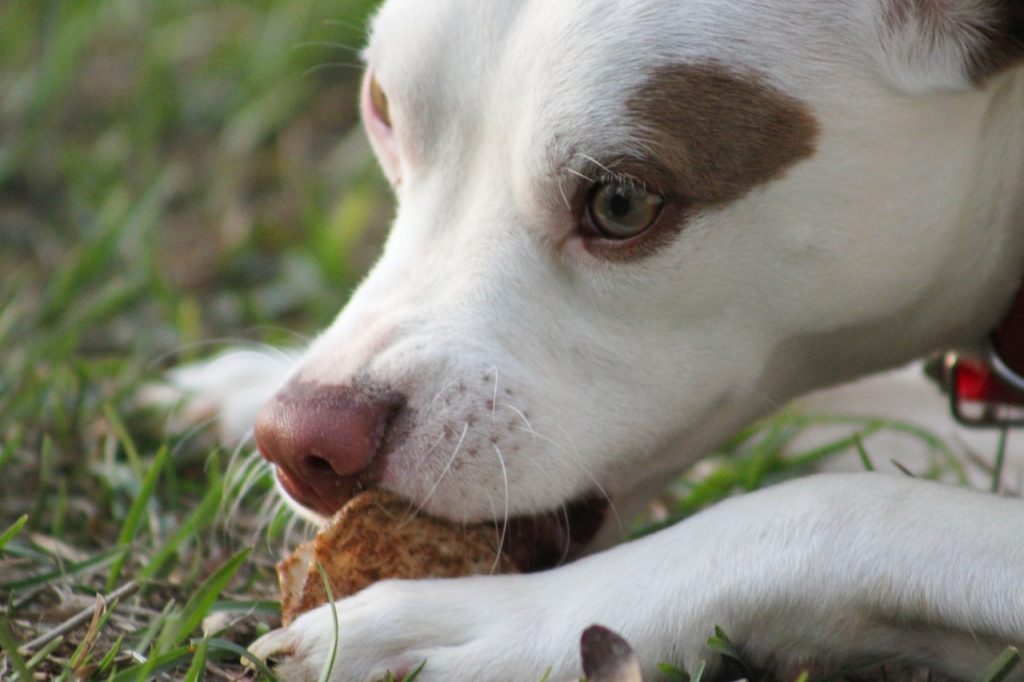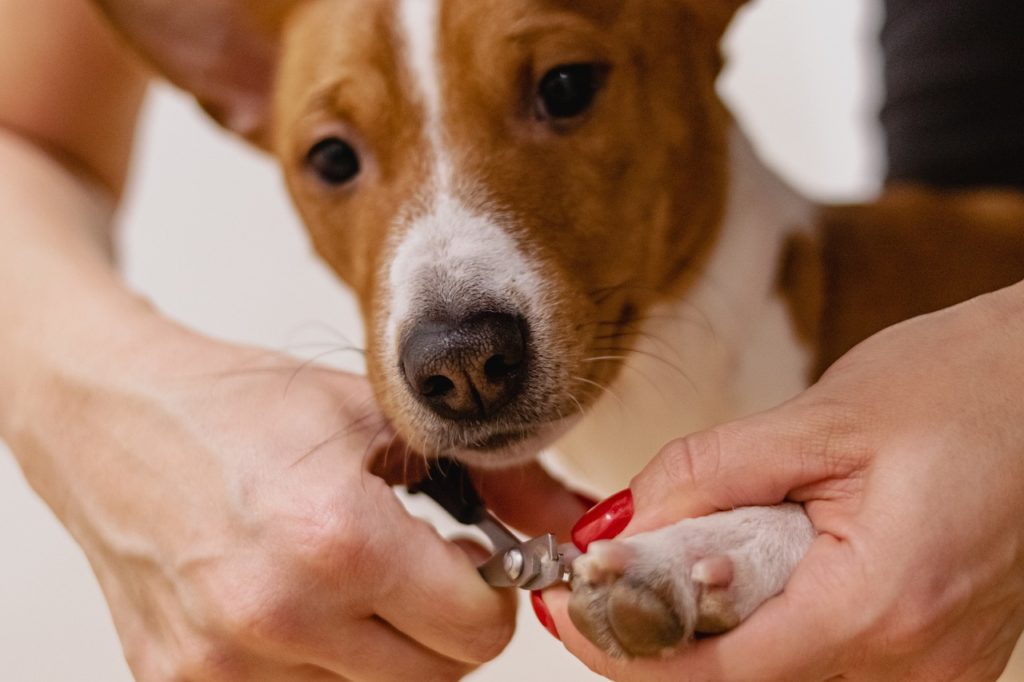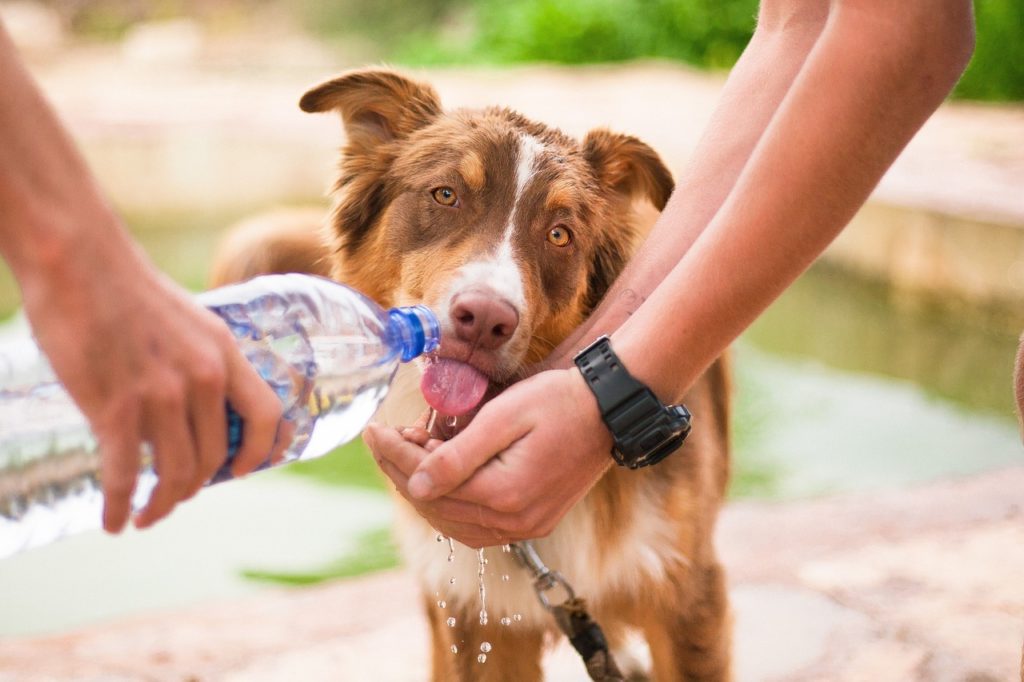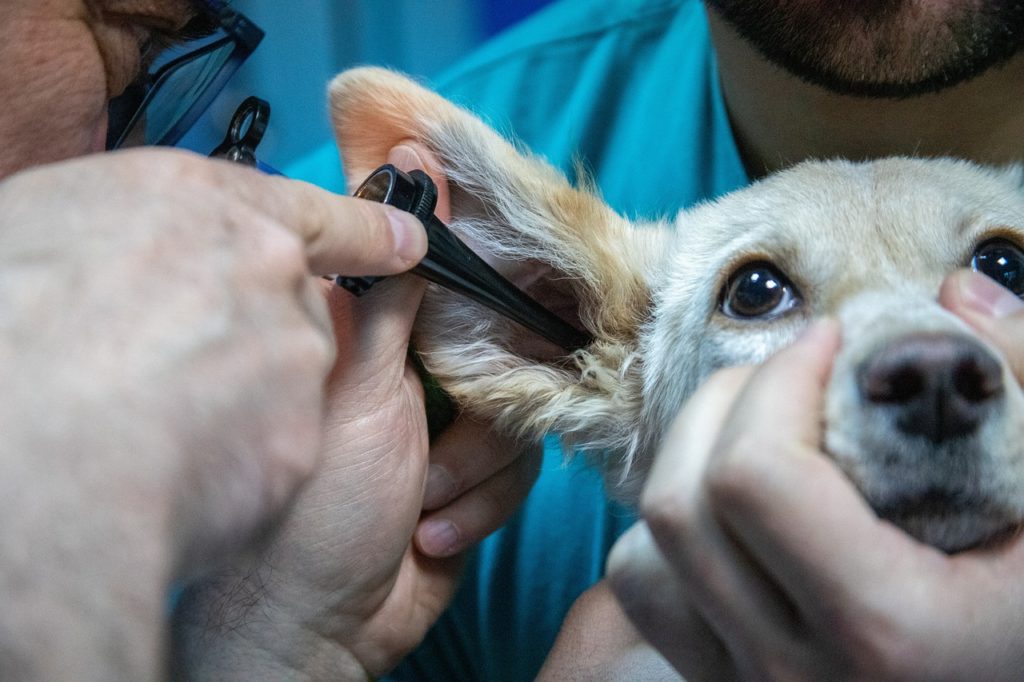
Improving your dogs gut health is crucial for their overall well-being.
A healthy gut contributes to better digestion, nutrient absorption, and a stronger immune system.
In this comprehensive guide on how to improve dog gut health, we’ll explore various strategies to enhance your furry friend’s gut health.
1. Choose High-Quality Dog Food To Improve Dog Gut Health:
Start by selecting a premium, well-balanced dog food.
Look for options that contain high-quality protein sources, limited fillers, and essential nutrients.
Avoid artificial additives and preservatives, as they can negatively impact gut health.
Premium Dog Foods for Optimal Gut Health: Top 5 Recommendations
- Hill’s Science Diet Adult Sensitive Stomach & Skin Dog Food: Formulated with prebiotic fiber to support a balanced microbiome.
- Royal Canin Gastrointestinal Low Fat Dog Food: Designed to promote digestive health with easy-to-digest proteins and a blend of prebiotics.
- Purina Pro Plan Sensitive Skin & Stomach Salmon & Rice Formula: Features easily digestible ingredients and prebiotic fiber for optimal gut health.
- Wellness CORE Grain-Free Original Recipe: Contains probiotics for digestive health and is grain-free for dogs with sensitivities.
- Acana Singles Limited Ingredient Diet Lamb & Apple Formula: Offers a limited ingredient approach with high-quality protein and essential nutrients for digestive well-being.

2. Incorporate Probiotics To Improve Dog Gut Health:
Probiotics are beneficial bacteria that promote a healthy balance in the gut microbiome.
Consider adding probiotic supplements or choosing dog foods that are specifically formulated with added probiotics.
These microorganisms aid in digestion and help prevent harmful bacteria from dominating the gut.
Enhance Your Dog’s Well-Being: Top 3 Probiotic Supplements for Optimal Gut Health
- Purina Pro Plan Veterinary Diets FortiFlora Canine Probiotic Supplement: Contains a probiotic strain proven to promote intestinal health in dogs.
- Nutramax Proviable DC Digestive Health Supplement: Offers multi-strain probiotics to support both large and small intestine health in dogs.
- Zesty Paws Probiotic Bites with Natural Enzymes: Combines probiotics with enzymes for improved digestion and overall gut health in dogs.

3. Include Prebiotics To Improve Dog Gut Health:
Prebiotics are substances that fuel the growth of beneficial bacteria in the gut.
Common sources include chicory root, sweet potatoes, and bananas.
Integrate these prebiotic-rich foods into your dog’s diet to support the flourishing of beneficial gut bacteria.
Nourishing Gut Health: Top 6 Prebiotics for Your Dog’s Digestive Well-Being
- Inulin: Found in chicory root, it’s a natural prebiotic that supports the growth of beneficial bacteria in the dog’s gut.
- Fructooligosaccharides (FOS): Often derived from fruits and vegetables, FOS promotes the growth of beneficial bacteria and helps maintain a healthy digestive system.
- Mannanoligosaccharides (MOS): Extracted from yeast cell walls, MOS acts as a prebiotic by promoting the growth of beneficial bacteria while inhibiting harmful bacteria in the dog’s gut.
- Galactooligosaccharides (GOS): Found in certain legumes, GOS supports the growth of beneficial bacteria and contributes to a healthy gut environment.
- Arabinogalactan: Sourced from plants like larch trees, arabinogalactan acts as a prebiotic, stimulating the growth of beneficial microorganisms in the dog’s digestive tract.
- Beta-Glucans: Present in certain grains like oats, beta-glucans are prebiotic fibers that promote the growth of beneficial bacteria in the gut, contributing to overall digestive health in dogs.

4. Rotate Protein Sources:
Variety in protein sources can contribute to a diverse microbiome.
Rotate between different protein options like chicken, beef, fish, and lamb to provide a range of nutrients and support a robust gut environment.
5. Avoid Overfeeding:
Overfeeding can strain your dog’s digestive system.
Follow feeding guidelines based on your dog’s size, age, and activity level.
Maintaining a healthy weight is crucial for overall well-being, including gut health.

6. Monitor Treats and Table Scraps:
Be mindful of the treats and table scraps you share with your dog.
Some human foods, such as chocolate, onions, and grapes, can be toxic to dogs.
Stick to dog-friendly treats and limit the intake of high-fat or highly processed snacks.
7. Consider Digestive Enzyme Supplements To Improve Dog Gut Health:
Digestive enzyme supplements can aid in breaking down food, making nutrients more accessible for absorption.
Consult with your veterinarian to determine if digestive enzyme supplements are suitable for your dog’s specific needs.
Optimize Your Dog’s Digestive Wellness: Top 3 Enzyme Supplements for Comprehensive Support
- Zesty Paws Digestive Enzymes Plus Probiotics: A comprehensive blend of enzymes and probiotics to support healthy digestion in dogs.
- VetriScience VetZyme Digestive Support: Contains a mix of enzymes to aid in the breakdown of proteins, fats, and carbohydrates, promoting overall digestive health.
- Nutri-Vet Multi-Enzyme Dog Chewables: Offers a combination of enzymes to assist in the digestion of various nutrients, supporting your dog’s digestive system.

8. Hydration is Key To Dog Gut Health:
Adequate water intake is essential for maintaining proper digestion.
Ensure that your dog always has access to clean, fresh water.
Dehydration can lead to constipation and other digestive issues.
9. Regular Exercise Improves Dog Gut Health:
Regular physical activity supports overall health, including a well-functioning digestive system.
Exercise helps maintain a healthy weight, reduces stress, and promotes efficient digestion.
Aim for daily walks, playtime, and other forms of exercise suitable for your dog’s breed and energy level.

10. Minimize Stress:
Stress can negatively impact gut health in dogs.
Provide a calm and secure environment, especially during changes or challenging situations.
Familiarize your dog with routines and create a safe space where they can retreat if needed.
Creating a Calm Haven: 10 Tips to Minimize Stress for Your Furry Friend
- Routine and Consistency: Establish a regular schedule for feeding, walks, and playtime to provide a sense of predictability for your dog.
- Create a Safe Space: Designate a quiet and comfortable area where your dog can retreat to when feeling stressed. Make it cozy with a bed and toys.
- Positive Reinforcement: Use positive reinforcement techniques during training to build your dog’s confidence and strengthen the bond between you.
- Exercise Regularly: Physical activity is crucial for a dog’s mental and physical well-being. Ensure they get enough exercise to release pent-up energy.
- Provide Mental Stimulation: Engage your dog with puzzle toys, interactive games, or training sessions to keep their mind active and alleviate boredom.
- Avoid Sudden Changes: Dogs can be sensitive to changes in their environment. Gradually introduce any changes and monitor their reactions.
- Use Calming Aids: Consider using calming products like pheromone diffusers, calming sprays, or calming collars to create a soothing atmosphere.
- Quality Time: Spend quality time with your dog through bonding activities, such as grooming or gentle massages, to create positive associations.
- Monitor Health: Ensure your dog is in good health by scheduling regular veterinary check-ups. Health issues can contribute to stress.
- Be Mindful of Body Language: Learn to recognize signs of stress in your dog, such as excessive panting or pacing, and respond accordingly to alleviate their discomfort.

11. Veterinary Gut Health Check-ups:
Regular veterinary check-ups are crucial for identifying and addressing potential health issues.
Discuss your dog’s diet, digestion, and any concerns you may have with your veterinarian.
They can provide personalized advice and recommend specific dietary adjustments if necessary.
12. Slow Transition to New Foods:
When introducing new foods or switching your dog’s diet, do so gradually.
Abrupt changes can lead to digestive upset.
Slowly incorporate the new food over several days to allow your dog’s digestive system to adjust.

Conclusion:
Prioritizing your dog’s gut health involves a combination of proper nutrition, supplements, exercise, and a stress-free environment.
By implementing these strategies, you can contribute to a robust gut microbiome, ensuring your furry companion enjoys a happy and healthy life.
Always consult with your veterinarian before making significant changes to your dog’s diet or lifestyle.

